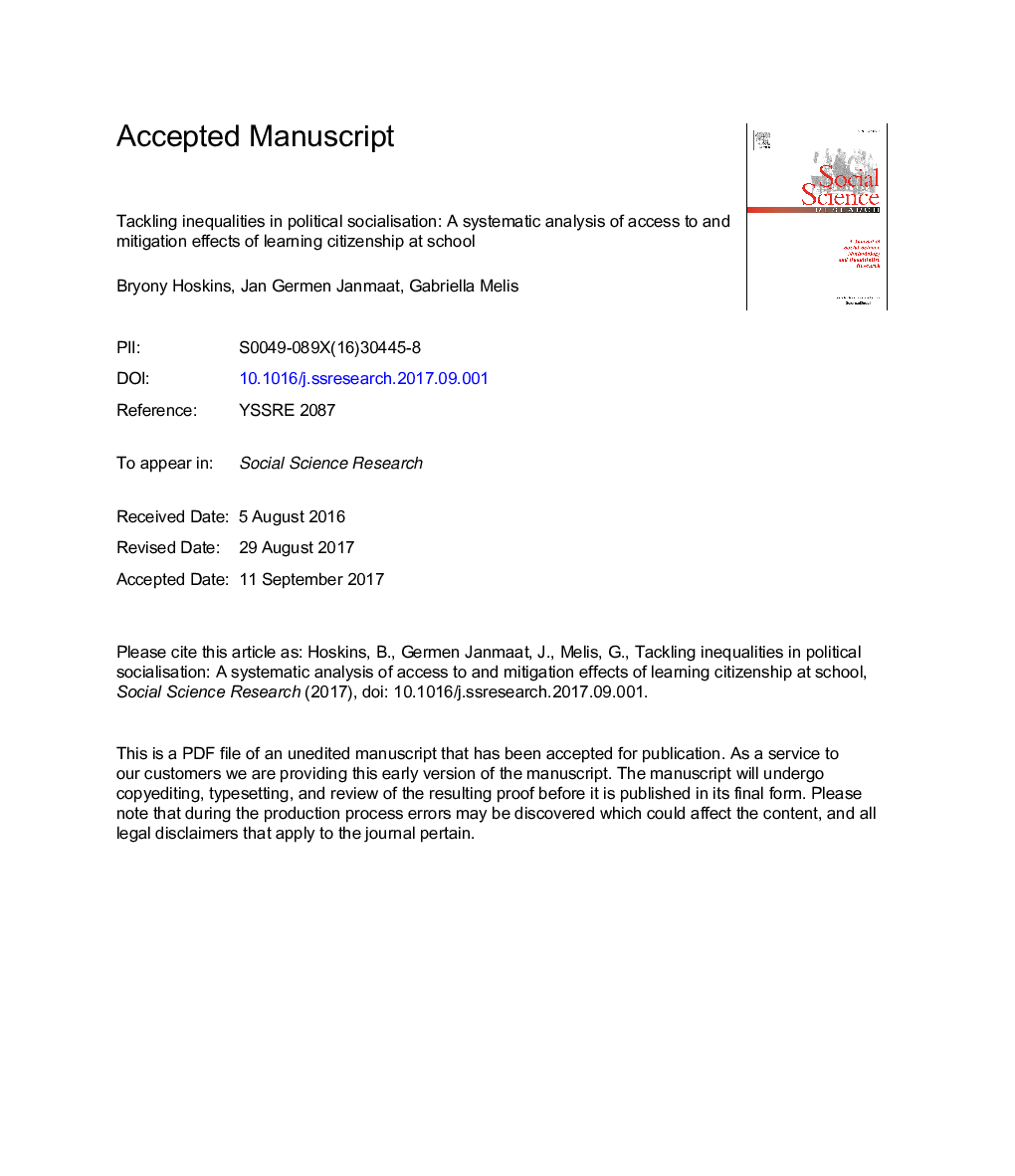| Article ID | Journal | Published Year | Pages | File Type |
|---|---|---|---|---|
| 7338917 | Social Science Research | 2017 | 46 Pages |
Abstract
This article tackles the issue of social inequalities in voting and identifies how and when differences in learning political engagement are influenced by social background in the school environment between the ages of 11-16 in England. Using Latent Growth Curve Modelling and Regression Analysis on the Citizenship Education Longitudinal (CELS) data this research identifies two elements that influence the political socialisation process: access to political learning and effectiveness in the form of learning in reducing inequalities in political engagement. The results show that there is unequal access by social background to learning political engagement through political activities in school and through an open classroom climate for discussion. However, there is equal access by social background to Citizenship Education in schools and this method of learning political engagement is effective at the age of 15-16 in reducing inequalities in political engagement.
Related Topics
Social Sciences and Humanities
Psychology
Social Psychology
Authors
Bryony Hoskins, Jan Germen Janmaat, Gabriella Melis,
